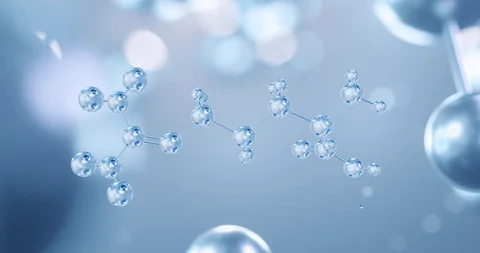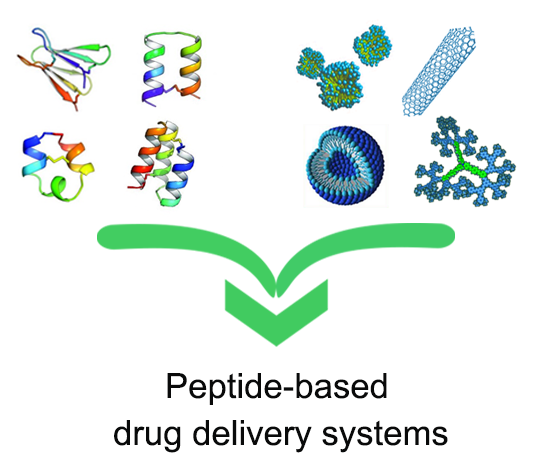Can Peptides Help You Build Muscle Faster?
Introduction
In the quest for optimal muscle growth and enhanced performance, athletes, bodybuilders, and fitness enthusiasts are constantly seeking the most effective strategies. One approach that has gained considerable attention in recent years is the use of peptides. But what exactly are peptides, and can they truly help you build muscle faster? In this comprehensive guide, we'll delve into the science behind peptides, their role in muscle growth, and whether they are a viable option for those looking to accelerate their muscle-building journey.
Understanding Peptides
Before we dive into their muscle-building potential, it’s essential to understand what peptides are. Peptides are short chains of amino acids, the building blocks of proteins. They play a crucial role in various physiological processes, including hormone regulation, immune response, and cell communication.
Types of Peptides and Their Functions
There are numerous types of peptides, each with specific functions. For muscle building, certain peptides have shown promise in enhancing muscle growth and recovery. Some of the key peptides include:
-
Growth Hormone-Releasing Peptides (GHRPs)
- GHRP-6 and GHRP-2: These peptides stimulate the pituitary gland to release growth hormone (GH). Increased GH levels can lead to improved muscle growth, fat loss, and recovery.
-
Growth Hormone Secretagogues (GHSs)
- Ipamorelin and Hexarelin: These peptides also stimulate GH release but may have fewer side effects compared to GHRPs. They can enhance muscle mass and strength.
-
Insulin-Like Growth Factor 1 (IGF-1)
- IGF-1 LR3: This peptide mimics the effects of insulin-like growth factor, which plays a significant role in muscle growth and repair. IGF-1 promotes protein synthesis and muscle hypertrophy.
-
Melanotan II
- Though not directly related to muscle growth, Melanotan II influences appetite and fat metabolism, which can indirectly support muscle-building efforts.
How Peptides Promote Muscle Growth
To understand how peptides can aid in muscle growth, let’s break down their mechanisms of action:
-
Increased Growth Hormone Levels Peptides such as GHRPs and GHSs stimulate the release of growth hormone. GH is crucial for muscle growth as it promotes protein synthesis and muscle cell regeneration. Elevated GH levels can lead to increased lean muscle mass and improved muscle recovery.
-
Enhanced IGF-1 Production IGF-1 is a key mediator of GH effects. By increasing IGF-1 levels, peptides like IGF-1 LR3 can enhance muscle protein synthesis, reduce muscle breakdown, and support muscle repair. This results in more significant muscle gains over time.
-
Improved Recovery and Reduced Fatigue Peptides can aid in quicker recovery between workouts by reducing muscle damage and inflammation. Faster recovery allows for more frequent and intense training sessions, contributing to greater muscle growth.
-
Support for Muscle Repair and Regeneration Some peptides can accelerate the repair of damaged muscle tissues, leading to improved muscle hypertrophy. This process involves the activation of satellite cells, which are responsible for muscle regeneration.
Scientific Evidence and Research
While anecdotal evidence and user testimonials suggest that peptides can enhance muscle growth, it’s crucial to look at scientific studies for a more comprehensive understanding. Here’s a summary of some key research findings:
-
Growth Hormone-Releasing Peptides Studies have shown that GHRPs can significantly increase GH levels in both young and elderly individuals. Elevated GH levels have been associated with improved muscle mass and strength. However, the long-term effects and safety of these peptides require further investigation.
-
IGF-1 Peptides Research on IGF-1 LR3 has demonstrated its potential to enhance muscle growth and strength. Clinical trials have reported increased muscle mass and improved physical performance in participants using IGF-1 LR3. Nonetheless, potential side effects and long-term impacts need to be addressed.
-
GHSs Ipamorelin and Hexarelin have been studied for their efficacy in increasing GH levels and supporting muscle growth. Both peptides have shown promise in improving muscle mass and recovery, although more extensive research is needed to confirm their long-term benefits and safety.
Peptides vs. Traditional Muscle-Building Methods
When comparing peptides to traditional muscle-building methods such as resistance training and nutrition, it’s essential to consider their roles and effectiveness:
-
Resistance Training Resistance training remains the cornerstone of muscle building. It stimulates muscle growth through mechanical tension, muscle damage, and metabolic stress. Peptides can complement resistance training by enhancing recovery and growth but should not replace the need for a structured training regimen.
-
Nutrition Adequate protein intake and a balanced diet are crucial for muscle growth. Peptides can support muscle protein synthesis and repair but are not a substitute for proper nutrition. A well-rounded diet combined with peptides may yield the best results.
-
Supplements and Performance Enhancers Peptides are one of many supplements available for muscle building. Other supplements, such as creatine, beta-alanine, and branched-chain amino acids (BCAAs), also play a role in enhancing muscle growth. Combining peptides with these supplements can potentially maximize muscle gains.
Potential Side Effects and Risks
While peptides offer potential benefits for muscle growth, it’s crucial to be aware of their potential side effects and risks:
-
Hormonal Imbalances Excessive use of peptides that stimulate growth hormone release may lead to hormonal imbalances, which can cause issues such as insulin resistance or increased risk of diabetes.
-
Injection-Related Complications Many peptides are administered via injections, which can lead to complications such as infections, injection site reactions, or tissue damage.
-
Long-Term Safety The long-term safety of peptide use is not well-established. Prolonged use of certain peptides may have unforeseen health consequences, necessitating caution and regular medical supervision.
Legal and Ethical Considerations
The legality of peptide use varies by country and sports organizations. Some peptides are classified as controlled substances or banned by athletic regulatory bodies. It’s essential to ensure compliance with local laws and regulations before using peptides.
Ethical Considerations In sports and competitive events, the use of performance-enhancing substances, including peptides, raises ethical questions about fair competition. Athletes should consider the ethical implications and potential consequences of using such substances.
How to Use Peptides Safely
If you’re considering using peptides for muscle building, here are some guidelines to ensure safety and effectiveness:
-
Consult a Healthcare Professional Before starting any peptide regimen, consult with a healthcare provider or a specialist in sports medicine. They can help determine the appropriate peptides and dosage based on your individual needs and health status.
-
Follow Dosage Recommendations Adhere to recommended dosages and administration protocols to minimize the risk of side effects and ensure optimal results.
-
Monitor Health Regularly Regular health check-ups and monitoring are essential to detect any adverse effects early and make necessary adjustments to your peptide regimen.
-
Choose Reputable Sources Ensure that you obtain peptides from reputable and reliable sources to avoid counterfeit or contaminated products.
Conclusion
Peptides hold promise as a tool to accelerate muscle growth and enhance performance. By stimulating growth hormone release, increasing IGF-1 levels, and supporting muscle recovery, they offer a potential edge for those looking to optimize their muscle-building efforts. However, it’s crucial to approach peptide use with caution, considering potential side effects, legal implications, and ethical considerations.
Combining peptides with a solid foundation of resistance training, proper nutrition, and other supplements may provide the best results. Always consult with a healthcare professional before starting any new supplement or performance enhancer to ensure a safe and effective approach to achieving your muscle-building goals.




Leave a Reply